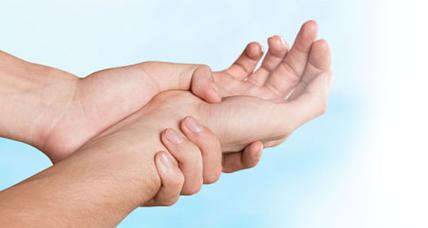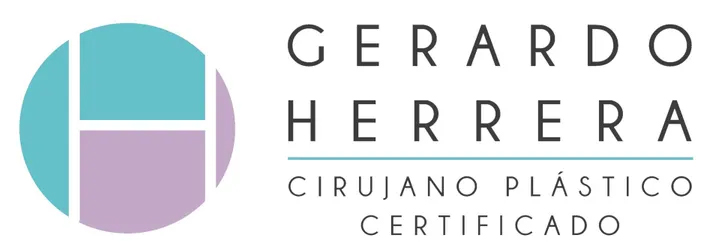The most common procedures in surgery of the hand are those intended to repair injuries, including injuries of tendons, nerves, blood vessels, joints, fractured bones, burns, cuts, and other skin damage. Modern techniques have significantly improved the surgeon's ability to restore function and appearance, even in severe damage.
Among the techniques used by plastic surgeons are:
• Grafts - Transfer of skin, bone, nerves and other tissues of a healthy part of the body to repair the damaged part.
• Flap surgery - mobilization skin subcutaneous tissue, blood vessels, bone and muscle or other body part to the place that has suffered trauma.
• Reimplantation or Transplants - They allow reconnection amputated fingers or hands using microsurgery. This is an extremely precise and delicate surgery performed under magnification. Some injuries require multiple dilated operations over an extended period of time for functional recovery.
In many cases, surgery can restore significantly the sensitivity and function of damaged hands. However, recovery may take months, and usually a physiotherapy and rehabilitation period is needed.
The carpal tunnel is a channel through the wrist, with the presence of tendons and one of the largest nerve of the hand. The pressure increase inside the tunnel because of many diseases (including rheumatoid arthritis), trauma, fluid retention during pregnancy, excessively repeated movements, etc. The resulting pressure on the nerve within the tunnel causes a tingling sensation in the fingers and decreases the function of opposition of the thumb. This is known as carpal tunnel syndrome.
In some cases the use of hand splinting and anti-inflammatory medication alleviates the problem, if not surgery is necessary.
During operation, the surgeon makes an incision from the palm to the wrist. The tissue that is pressuring on the nerve is cut relieving the pain. a bandage and a splint is applied to restrict movement and promotes healing. The scar is usually unnoticeable.
The results of surgery depend largely on how much compression has lasted and how much damage has been done on the nerve as it has been compressed. For this reason it is a good idea to go to the plastic surgeon if you think you may have carpal tunnel syndrome.
Rheumatoid arthritis is an inflammation of the joints, this disabling disease can affect the appearance and function of hands and other body parts. Often deforms the finger joints and leads to a position that hinders the movement.
Disability caused by rheumatoid arthritis can often be managed without surgery - for example, wearing special splints or using physical therapy to strengthen weakened areas. For some patients, however, surgery offers the best solution. If surgically treat the problem or not, is a decision you should make with your surgeon and your rheumatologist.
Surgery can repair and reconstruct almost any area of the hand by treating inflamed tissue, repositioning tendons, or implanting artificial joints. Although, your hand does not regain full functionality, you can generally expect a significant improvement in function and appearance. Anyway, it is important to remember that surgical treatment does not eliminate the underlying disease. Rheumatoid arthritis can continue to cause damage to your hand, sometimes requiring further surgery, and still need to continue to see your rheumatologist for further treatment.
Dupuytren's disease is a disorder of the skin and underlying tissue of the palm. A thick tissue forms as a scar below the skin of the palm that can extend to the fingers, pulling them toward the palm and restricting movement. This problem usually occurs toward mid-life and has no known cause (though there is a familial tendency).
Surgery is the only treatment split Dupuytren's disease. The surgeon cuts and separates the bands of thickened tissue, freeing the tendons and allowing better finger movement. The operation must be done very accurately, as the nerves of the hand and fingers are encompassed within the abnormal tissue. In some cases, skin grafts are needed to replace damaged skin.
The results of surgery depend on the severity of the problem. It can generally expect a significant improvement in function, particularly after physiotherapy acceptable scar.
Congenital hand deformities - existing birth deformities that can interfere with proper hand growth and cause significant problems in its functionality.
Fortunately, with modern surgical techniques most defects can be corrected at an early age - in some cases during infancy or at the age of 2-3 years - allowing normal development and function of the hand.
One of the most common congenital defects is syndactyly, in which two or more fingers are fused together. Surgical correction involves cutting the tissue connecting fingers grafting skin defects with other body part. (The procedure is more complicated if bones are also fused.) Surgery can provide a full range of motion and an almost normal appearance, although the grafted skin color may be slightly different from the rest hand.
Other common defects include misshapen, short, or absent fingers, unmovable tendons, and blood vessels and nerves abnormal. In most cases these defects can be treated surgically and can expect significant improvement.
Since the hand is a very sensitive body part, you may have moderate to severe pain after surgery. Oral or injectable medication is prescribed to prevent pain after surgery. Recovery time depends on the type and extent of surgery and how quickly heal
To speed up recovery and give the fullest possible functionality of the hand, we will recommend a plan of rehabilitation (physical and occupational therapy) under the supervision of a specialized rehabilitation physician. It may include hand exercises, heat and massage, nerve stimulation, splints, traction, and special bandages for controlling inflammation. Keep in mind that surgery is only the beginning of recovery. It is crucial that the therapist follow the instructions and complete the treatment plan if you want to achieve maximum functionality of your hand.

Hand Surgery
© 2018 copyright Hand Surgery in Guadalajara
Ruben Dario 1601 | Col. Providencia | Guadalajara | Jalisco | Tel. (33) 3817 2058
Dr. Gerardo Herrera
Carpal Tunnel
Rheumatoid Arthritis
Dupuytren's Contracture
Dupuytren's Contracture
Surgery
Plastic & Cosmetic
(33) 3817 2058
Spanish
Hand Surgery
Hand Surgeon in Mexico
(33) 3817 2058
01152
From USA

